FBI’s Investigation into Allegations of Targeted Violence Against Religious Groups
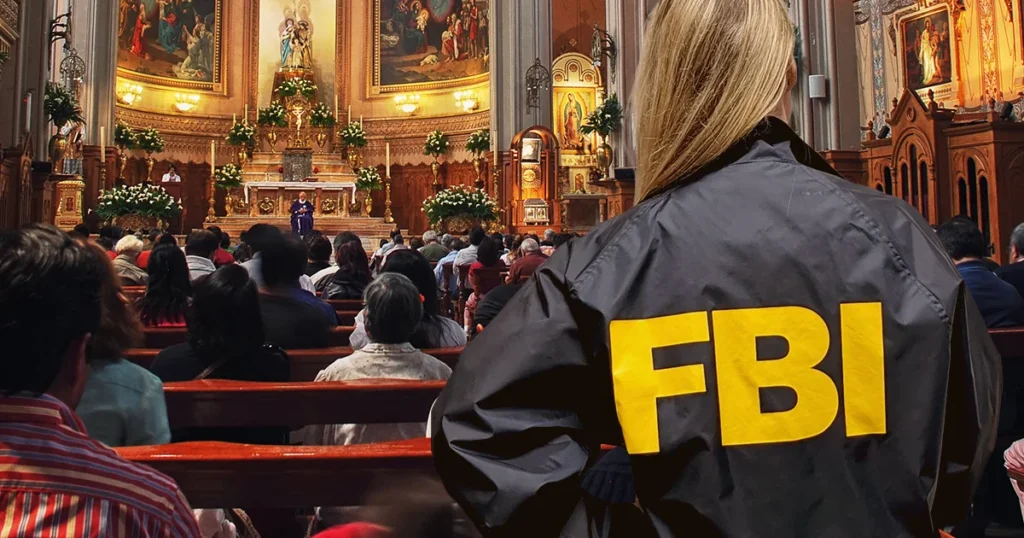
FBI's Investigation into Allegations of Targeted Violence Against Religious Groups
Introduction to the Incident
Recently, a rally organized by a prominent evangelical conservative group took place in Seattle, which has raised significant public attention and concern. The event was intended to galvanize support for various social issues espoused by the group, attracting a large crowd of participants. However, the rally was met with controversy and opposition from various community members and organizations advocating for inclusivity and religious tolerance. These opposing factions expressed their discontent through protests that unfolded concurrently with the rally, leading to a charged atmosphere in the city.
In response to the potential for unrest, Seattle Mayor Bruce Harrell issued a statement urging for dialogue and understanding among differing groups, emphasizing the importance of peaceful assembly and constructive discourse. He urged citizens to express their views without resorting to violence, highlighting the need for community cohesion in light of the differing opinions surrounding the event. Mayor Harrell’s proactive approach reflects a commitment to managing public safety while respecting individuals’ rights to partake in such demonstrations.
Following the rally and the ensuing tensions, the FBI found it necessary to step in due to increasing concerns regarding possible targeted violence against religious groups. Deputy Director Dan Bongino announced that the agency would be conducting a thorough investigation into the incidents surrounding the rally, focusing on whether any threats were made against individuals based on their religious beliefs. This escalation of federal involvement signifies the serious nature of the allegations and the broader implications for religious tolerance and safety in communal spaces.
The FBI’s investigation aims to assess the response of all parties involved and determine necessary measures to prevent future occurrences of violence, fostering an environment where diverse beliefs can coexist without fear of retaliation or harm. As these events unfold, the spotlight remains on the critical discourse surrounding religious freedom and communal harmony.
Background on the Rally and Events Leading to It
In recent years, Seattle has witnessed a shift in its social and political landscape, leading to various gatherings that reflect the complexities of the community. Among these was a rally organized by an evangelical conservative group at Seattle City Hall, which took place over the weekend. The event was characterized by its fervent themes, reflecting both religious beliefs and political grievances. The primary reason for organizing this rally was to voice opposition against what the group perceived as increasing hostility towards their values and beliefs within the larger sociopolitical environment.
The lead-up to the rally involved a series of discussions and planning sessions among the group’s members, who were motivated by recent legislative changes and events that they felt threatened their religious freedoms. Tensions rose in the weeks prior to the event, as local debates on issues related to religious expression and LGBTQ+ rights garnered national attention. As the date approached, the rally was framed as a necessary demonstration of solidarity against perceived discrimination faced by religious groups.
During the weekend demonstration, participants gathered in significant numbers, underscoring their commitment to their cause. However, the atmosphere quickly became charged due to the counter-protests that emerged in response to the rally. This juxtaposition of fervent displays from both sides resulted in heightened tensions. Reports indicated that skirmishes occurred between some attendees of the rally and counter-protesters, ultimately leading to violent confrontations. These unfortunate events drew considerable media attention, prompting a closer investigation by local authorities and federal agencies, including the FBI, which began to look into the underlying motivations and implications of the violence that ensued.
Mayor’s Controversial Statements
In recent months, the mayor’s comments regarding the violence targeted at religious groups have sparked significant controversy. Particularly alarming were statements in which the mayor suggested that Christians bear a considerable share of the responsibility for the unrest, framing their beliefs as a catalyst for hostility against other faith communities. This rhetoric has not only drawn backlash from various quarters but has also contributed to a palpable increase in tensions among different religious groups within the city.
The mayor’s assertions indicate an inclination to oversimplify complex social dynamics by attributing blame to a specific religious demographic. Such a perspective can be highly detrimental, given that it fosters a divisive narrative rather than promoting understanding and dialogue. By categorizing Christians as instigators of violence, the mayor risks alienating a segment of the community that has historically engaged in interfaith cooperation and dialogue. The implications of her statements extend beyond mere political discourse, as they have the potential to exacerbate existing frictions between religious groups.
Furthermore, the impact of these controversial statements on public sentiment cannot be overstated. Community members and leaders from various religious backgrounds have expressed concern that the mayor’s accusations may incite further animosity and distrust among groups that once coexisted with relative peace. Those advocating for unity and interfaith collaboration face a more challenging environment, as the mayor’s comments have led to a polarized atmosphere where dialogue is replaced by suspicion.
In light of these remarks, it is crucial for community leaders and members to reflect on their impact. Encouraging conversations between different religious affiliations may help to counteract the harmful effects of the mayor’s rhetoric and foster a more inclusive narrative that recognizes the shared values held by all. Ultimately, moving forward requires a commitment to dialogue rooted in empathy and understanding, rather than division.
Dan Bongino’s Call for Investigation
In response to growing concerns surrounding allegations of targeted violence against various religious groups, FBI Deputy Director Dan Bongino has made a notable request for a comprehensive investigation. This appeal by Bongino arises from an increasing number of reports indicating that certain religious communities are facing violence that may be motivated by bias or discrimination. The nature and frequency of these incidents have alarmed both community leaders and policymakers, signaling a pressing need for thorough scrutiny by law enforcement agencies.
Bongino has expressed that the FBI must utilize its resources to ascertain the truth behind these allegations, stressing the necessity of a prompt response to ensure the safety and security of all religious adherents. The call for action underscores the FBI’s commitment to uphold justice and investigate potential hate crimes, which are not only violent in nature but also instill fear within the affected communities. Such targeted violence can lead to systemic societal ramifications, further dividing communities and eroding the values of tolerance and coexistence.
The importance of addressing these allegations is multifaceted. On one hand, there is a moral imperative to protect vulnerable groups from violence motivated by religious intolerance. On the other, an investigation could reinforce public confidence in law enforcement agencies, showcasing their dedication to investigating crimes of hate and ensuring accountability for any criminal acts. By initiating an inquiry into these alarming allegations, the FBI can lend support to community efforts aimed at fostering dialogue and understanding among diverse religious groups, thereby contributing to a more inclusive society.
Ultimately, Bongino’s request reflects a broader recognition of the challenges posed by targeted violence against religious groups and emphasizes the need for decisive action to safeguard the rights and freedoms of all individuals, irrespective of their faith.
Understanding Targeted Violence and Its Implications
Targeted violence is defined as acts of aggression directed towards individuals or groups based on specific characteristics, including religion, ethnicity, sexual orientation, and more. When this violence is directed at religious groups, it transcends mere criminal behavior and becomes an attack on fundamental freedoms and societal cohesion. The motivations behind such violence often stem from deep-seated prejudices, ideological extremism, or a desire to instill fear within a particular community.
The implications of targeted violence against religious groups can be profound and multifaceted. First and foremost, the safety and security of individuals belonging to those communities are at stake. Incidents of violence not only injure victims physically but also create an atmosphere of fear and vulnerability. This fear may lead to changes in behavior, such as individuals avoiding public places or religious gatherings, thereby affecting community participation and social interaction.
Moreover, the psychological effects of targeted violence can be long-lasting, contributing to Post-Traumatic Stress Disorder (PTSD) and other mental health issues among affected individuals. Beyond personal implications, acts of violence against religious groups can strain relations within and between communities. They can exacerbate tensions, leading to mistrust and division within society, ultimately undermining the social fabric that is vital for a cohesive community.
Additionally, the impact is not limited to the immediate victims or their families. Such violent acts can trigger a backlash against other minority groups, prompting broader societal fears and reinforcing xenophobia or intolerance. The repercussions of targeted violence extend to law enforcement and governmental bodies as well, necessitating a robust response that recognizes the complexity of these issues. Protecting vulnerable communities must be balanced with upholding civil liberties and ensuring an environment where diverse beliefs can coexist peacefully.
The Role of Law Enforcement in Protecting Religious Groups
Law enforcement agencies play a crucial role in safeguarding religious groups from targeted violence. With the increase in hate crimes and potential threats to various faith-based communities, it is imperative for law enforcement to take proactive measures to prevent and respond to violence against these groups. This involves comprehensive strategies that include thorough investigations, community outreach, and preventive protocols.
One primary responsibility of law enforcement is to conduct thorough investigations when allegations of targeted violence arise. These investigations can include the gathering of evidence related to hate crimes, threats, or acts of violence directed at religious institutions or individuals. Collaborating with local community leaders and representatives can help law enforcement agencies effectively assess threats and understand the specific concerns of different religious communities. By maintaining open lines of communication, law enforcement can build trust within these communities, encouraging them to report incidents of violence or intimidation without fear of retribution.
In addition to investigations, community outreach programs are fundamental in fostering a secure environment for religious groups. Law enforcement agencies often establish partnerships with local religious leaders to host educational workshops and forums that address safety protocols, crisis response strategies, and interfaith dialogue. These initiatives not only promote understanding and tolerance among diverse groups but also empower religious communities to advocate for their own safety, enhancing their overall resilience against potential acts of violence.
Preventative measures are equally vital. Law enforcement can implement strategies such as increased patrols around places of worship, the establishment of hotlines for reporting threats, and the provision of risk assessments for religious institutions. By taking a multifaceted approach that emphasizes investigation, community engagement, and proactive protection, law enforcement agencies can effectively contribute to reducing the risk of targeted violence against religious groups and ensuring their safety in society.
Reactions from Various Community Leaders
In the aftermath of the FBI’s investigation into allegations of targeted violence against religious groups, various community leaders and organizations have articulated their responses, reflecting a myriad of perspectives and concerns. Religious leaders from diverse faith backgrounds have expressed serious apprehensions regarding the implications of such investigations on their respective communities. Many emphasize the need for a balanced approach that prioritizes community safety while respecting religious freedoms and civil rights.
Several leaders have raised alarms about potential profiling and discrimination. For instance, representatives from Muslim organizations have articulated their fears that heightened scrutiny could exacerbate existing prejudices and create an atmosphere of mistrust. They advocate for transparency in the investigation process and caution against measures that could unfairly target specific groups. The sentiments echoed by these leaders point to a broader concern about ensuring that law enforcement actions do not undermine the fabric of community cohesion and mutual respect.
Similarly, Jewish community representatives have released statements demonstrating their support for thorough investigations, yet they call for an approach that does not criminalize religious expression. Their perspective highlights the historical context of anti-Semitism and the precarious position that minority religious groups often find themselves in. They argue that community engagement is integral to addressing violence concerns without stigmatizing particular faiths.
Activists from various organizations have also chimed in, urging that the focus should not solely be on punitive measures but rather on fostering dialogue among different religious communities. Many stress the importance of collaboration between law enforcement and community leaders to facilitate understanding and prevent violence. Ultimately, the reactions from community leaders illustrate a complex landscape of expectations surrounding the FBI’s investigation, reflecting both the urgency of addressing violence and the necessity of preserving fundamental rights.
National Implications and Broader Impact
The FBI’s investigation into allegations of targeted violence against religious groups, particularly in Seattle, raises significant national implications that extend beyond localized concerns. Such incidents often serve as indicators of broader trends related to religious freedom, systemic discrimination, and social unrest across the United States. The rise of targeted violence against individuals based on their religious beliefs signals a decline in the societal commitment to the fundamental principle of religious tolerance, which is a cornerstone of a democratic society.
The statistical increase in hate crimes and violent acts targeting religious minorities promotes an environment of fear and distrust among various communities. Religious freedom is enshrined in the First Amendment, yet instances of intolerance challenge this fundamental right. The patterns observed in Seattle reflect not only local incidents but also a distressing shift in societal attitudes toward diverse religious practices nationwide. This shift could embolden individuals and groups that promote intolerance, further fracturing the social fabric of the nation.
Moreover, widespread discrimination faced by religious minorities can lead to social unrest, as marginalized groups express their grievances over perceived injustices. Events characterized by escalating violence against these communities may foster a climate of polarization, where diverse faith ensembles find themselves isolated and increasingly vulnerable to hate-fueled actions. The implications of such discontent could reverberate through public policy, prompting lawmakers to reconsider approaches to safeguarding religious freedoms.
As the FBI continues its investigation, outcomes will likely influence ongoing discussions regarding hate crime legislation and community safety protocols. By understanding the national implications of targeted violence against religious groups, stakeholders can better navigate the complex dynamics of discrimination and advocate for policies that promote inclusivity and communal harmony across the United States.
Conclusion and Next Steps
In examining the FBI’s investigation into allegations of targeted violence against religious groups, it is essential to acknowledge the critical interplay between law enforcement practices and community dynamics. The findings underscore a growing concern regarding incidents of hate crimes, which not only threaten the safety of individuals belonging to various faiths but also disrupt the fabric of society. This investigation highlights the necessity for a coordinated response from both authorities and community leaders to address these troubling patterns of violence.
One of the key points derived from the investigative outcomes is the importance of fostering dialogue between communities and law enforcement agencies. Building trust and understanding can significantly enhance collaborative efforts aimed at mitigating targeted violence. Community leaders are encouraged to engage in outreach programs that promote awareness and education on the tenets of inclusivity and respect for diverse religious beliefs. Such endeavours can help dispel misconceptions and reduce the stigma that often accompanies minority communities.
On the law enforcement side, the establishment of more rigorous reporting systems for hate crimes is imperative. This can facilitate a better understanding of the prevalence of targeted violence and guide strategic interventions. Additionally, training programs that focus on cultural competency for police officers can further improve interactions with various religious communities, leading to more effective prevention and response strategies.
As we move forward, it is critical for religious organizations, community leaders, and law enforcement to work hand in hand. By sharing resources, insights, and mutually reinforcing efforts, we can create an environment where violence against individuals of any faith is unequivocally condemned. The ultimate goal remains to cultivate a society that embraces diversity, ensuring safety and respect for all individuals, irrespective of their religious affiliation.

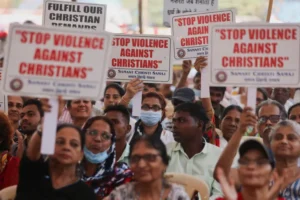
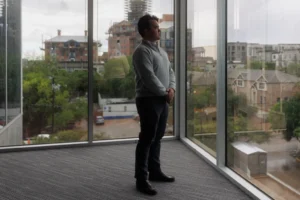




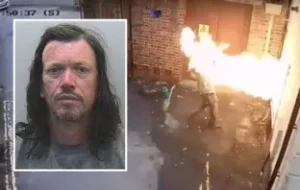
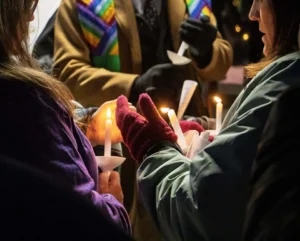

Leave a Reply
You must be logged in to post a comment.